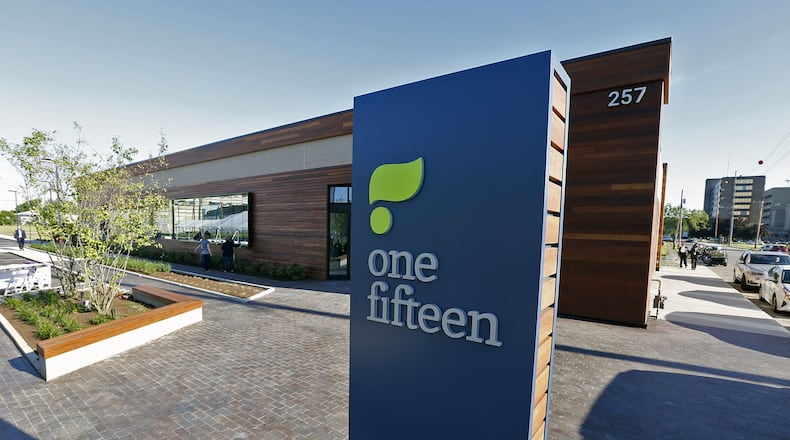The estimated cost for the project is $5 million.
OneFifteen plans to measure the success of the project by monitoring whether the program leads to sustained recovery. This is in line with the overall goal of OneFifteen, which intends to collect and analyze data so the organization can continue to improve clinical, social, and cost outcomes.
MORE: Sober living apartments part of unique recovery campus
“Anthing we do, we want to look at if this is evidence based care. If there’s not evidence, how do we do then put somehing in place so we can learn what is the best way to provide care or do what we’re doing? We want to be able to say ‘this is what a learning health system can create,’” said Marti Taylor, the 115 chief executive.
To help cover these costs, OneFifteen officials want to be among local projects chosen for a list of priorities that local leaders will lobby for at the state and federal level. Taylor said her team is mainly looking for state funds.
Dayton Development Coalition’s Priority Development and Advocacy Committee each year sorts through dozens of requests to create the prioritized list of which projects it will lobby for. The city of Dayton, Carillon Civic Council, CityWide Development, Kettering Health Network, and the Montgomery County Sheriff’s Office sent letters in support of the project.
The outpatient clinic started seeing its first patients at its Hopeland Street outpatient clinic in September when some of Premier’s Samaritan Behavioral Health patients started to transfer over and more recently opened up to outside patients and is accepting new patients.
The company’s Crisis Stabilization Unit, inside Kindred Hospital Dayton, should open early next year. The unit will be an alternative to the ER for patients having an addiction crisis to get immediately evaluated and can help manage withdrawal.
“By adding outpatient withdrawal services, they can bring more people into the OneFfiteen ecosystem that provides medically assisted treatment, social services and peer support services giving patients the best chance at full, and sustained recovery,” said Karen DeMasi, vice president of CityWide.
MORE: New crisis care center called missing piece for addicts
OneFifteen already received financial backing from Alexandria Real Estate Equities, which developed the campus, and Taylor said the real estate firm could also match funds found through a local, state, or federal funding award.
The submission did not include a budget breaking down how OneFifteen arrived at $5 million as the project estimated cost. Taylor said the $5 million estimate includes not just construction costs but the full cost of opening the new center.
As OneFifteen expands in 2020, it will have a crisis stabilization unit, intensive outpatient, and residential treatment levels, co-occurring mental health treatments, and medical care services. Over time, OneFifteen plans to add support services such as job training and residential housing opportunities.
OneFifteen is already preparing to have inpatient withdrawal management for up to 12 people at a time for an average length of stay of more than 24 hours. The outpatient detox services will increase withdrawal management capacity to be provided at an inpatient level to an additional 30 people with an average length of stay of 8.5 days.
On average, OneFifteen will be able to manage detox services for almost 1,300 additional people annually.
Public comment
Dayton Development Coalition's Priority Development and Advocacy Committee each year sorts through dozens of requests to create the prioritized list of which projects it will lobby for. The public can comment on the ideas, including the request from OneFifteen, can be submitted until Dec. 6 at DaytonRegion.com or by emailing pdac@daytonregion.com.
About the Author
